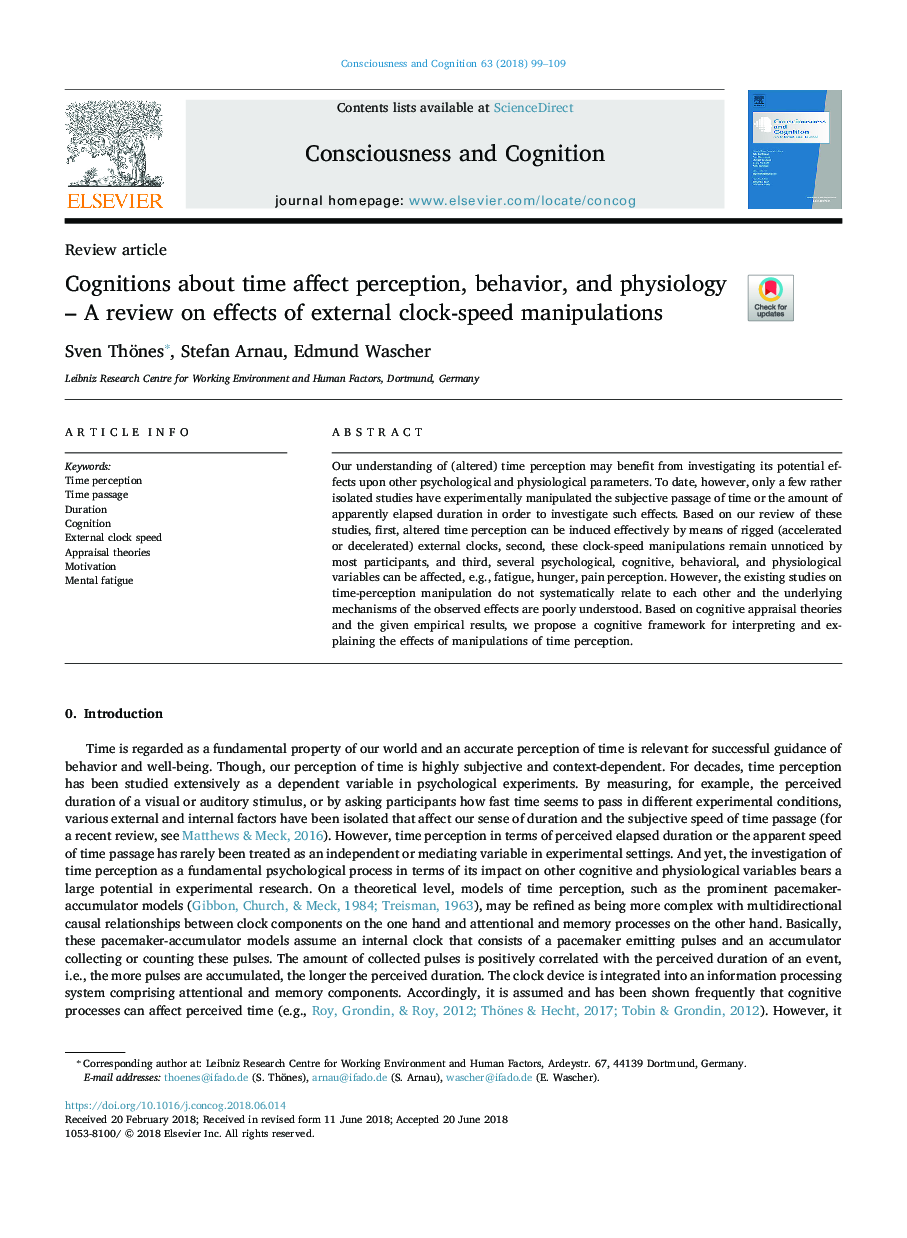| Article ID | Journal | Published Year | Pages | File Type |
|---|---|---|---|---|
| 7287835 | Consciousness and Cognition | 2018 | 11 Pages |
Abstract
Our understanding of (altered) time perception may benefit from investigating its potential effects upon other psychological and physiological parameters. To date, however, only a few rather isolated studies have experimentally manipulated the subjective passage of time or the amount of apparently elapsed duration in order to investigate such effects. Based on our review of these studies, first, altered time perception can be induced effectively by means of rigged (accelerated or decelerated) external clocks, second, these clock-speed manipulations remain unnoticed by most participants, and third, several psychological, cognitive, behavioral, and physiological variables can be affected, e.g., fatigue, hunger, pain perception. However, the existing studies on time-perception manipulation do not systematically relate to each other and the underlying mechanisms of the observed effects are poorly understood. Based on cognitive appraisal theories and the given empirical results, we propose a cognitive framework for interpreting and explaining the effects of manipulations of time perception.
Related Topics
Life Sciences
Neuroscience
Cognitive Neuroscience
Authors
Sven Thönes, Stefan Arnau, Edmund Wascher,
